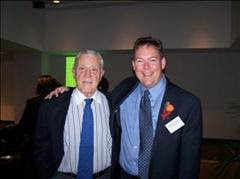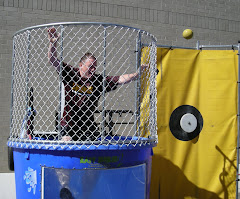Tweens may back talk, but you can end it now.
By Jennifer O'Donnell, About.com Guide
You couldn't have imagined when your child was learning his first words that he'd eventually use those words against you one day. Just about every tween will engage in back talk eventually, but that doesn't mean it's acceptable behavior. If your tween has yet to respond to a request from you with a retort such as, "I don't THINK so!" just wait. At some point the eye-rolling, the attitude, and the words to go with them will present themselves. When it happens, here's what you should do when your tween engages in back talk.
Set a Good Example
It seems so obvious, but the very best way to encourage respectful behavior from your tween is to model it yourself. When you're angry or frazzled, be sure your actions and words don't give you away. Show your child that even when you're stressed and tired, you're capable of responding in a civil manner.
Children witness rude and crude behavior at school, on the television, and just about everywhere these days. Point out that when people behave rudely, or in a sassy manner, it reflects badly on them. Sitcoms (even those aimed at tweens and families) are peppered with sassy back talk, especially from child characters. Your child may think that such behavior is funny and clever, but you need to make it clear that life is not a sitcom, and that you expect your child to follow the behavior rules you've set down for him.
Jump On Bad Behavior
It's important to stay on top of our tween's behavior, in order to prevent bad habits down the road. When your daughter rolls her eyes at you when you tell her to start her homework, or replies, "Yeah, sure!" when you ask her to clear the dinner table, it's time for action. Tell her that her behavior irritates you and is disrespectful. Ask her to reconsider her response and try again.
The same advice applies when your tween challenges your authority, or attempts to blame her circumstances on you. For example, if you reprimand your tween for failing to clear the dinner table, she may reply, "You didn't remind me!" or "I forgot, why didn't you tell me again!" When the back talk becomes an offensive maneuver, it's important not to give in. Simply reply, "One request should be enough," and continue with your plan of action, whether it's enforcing a consequence or asking her to reconsider her remarks.
It's tempting to let your tween get away with copping an attitude or engaging in back talk, especially when you're tired. When you're tired the last thing you want is a confrontation. The problem is that talking back is a behavior that quickly becomes a habit, and the only way to prevent that from happening is to address it, each and every time it happens.
Enforce Consequences for Back Talk
If your tween's attitude doesn't adjust after a request from you, it's time to get a bit more serious. Tell your child that you just won't engage in debate with him until he's calmed down and can communicate respectfully. Send him to his room to quiet down, and tell him to let you know when he's ready to talk. When he's in a better frame of mind, gently remind him that there is a right way and a wrong way to speak to you, and that you expect him to remember the difference even when he's angry, tired, or frustrated. It's important that your child understands that you want to hear what he has to say, and that he feels comfortable speaking up. At the same time, it's important for him to know how to do it respectfully.
Reward Respectful Behavior
Just as you dole out consequences for rude and crude behavior, you should also reward your tween when she's polite and behaving respectfully. Tell her how proud you are of her when she's polite to you and others, and reward her behavior with time together, a treat, or even a hug.
When others comment on your tween's positive behavior, share the news with her so she's aware that others do notice how she behaves in public, as well as how she treats other people, including you.
Accept Challenges, Occasionally
Sometimes a tween doesn't mean to be rude or back talk. Tween brains are developing rapidly, and so are their intellects. Curious tweens may pose questions that come across as challenges, when they're really not intended that way. An example may be when your tween challenges a teacher about something she's learning in school. Help your tween understand the difference between questioning and challenging. Point out the importance of tone of voice, and in phrasing questions properly. Role play so your child understands that it's OK to inquire, but that there's a certain skill involved in doing it diplomatically.
Subscribe to:
Post Comments (Atom)

















No comments:
Post a Comment